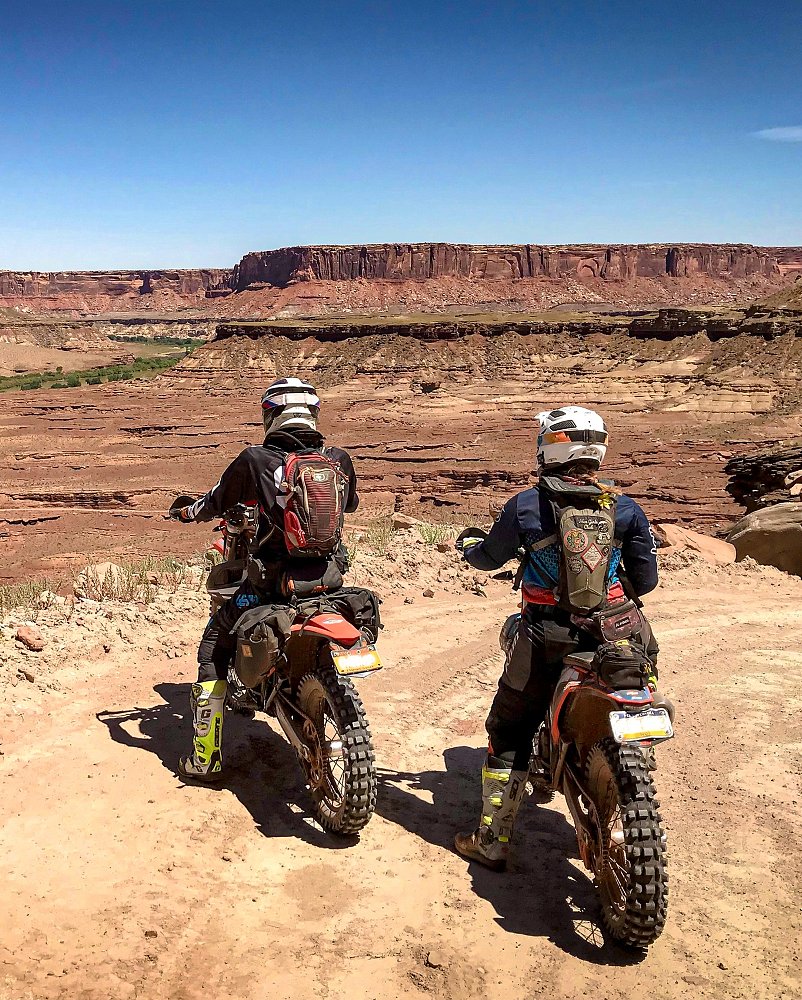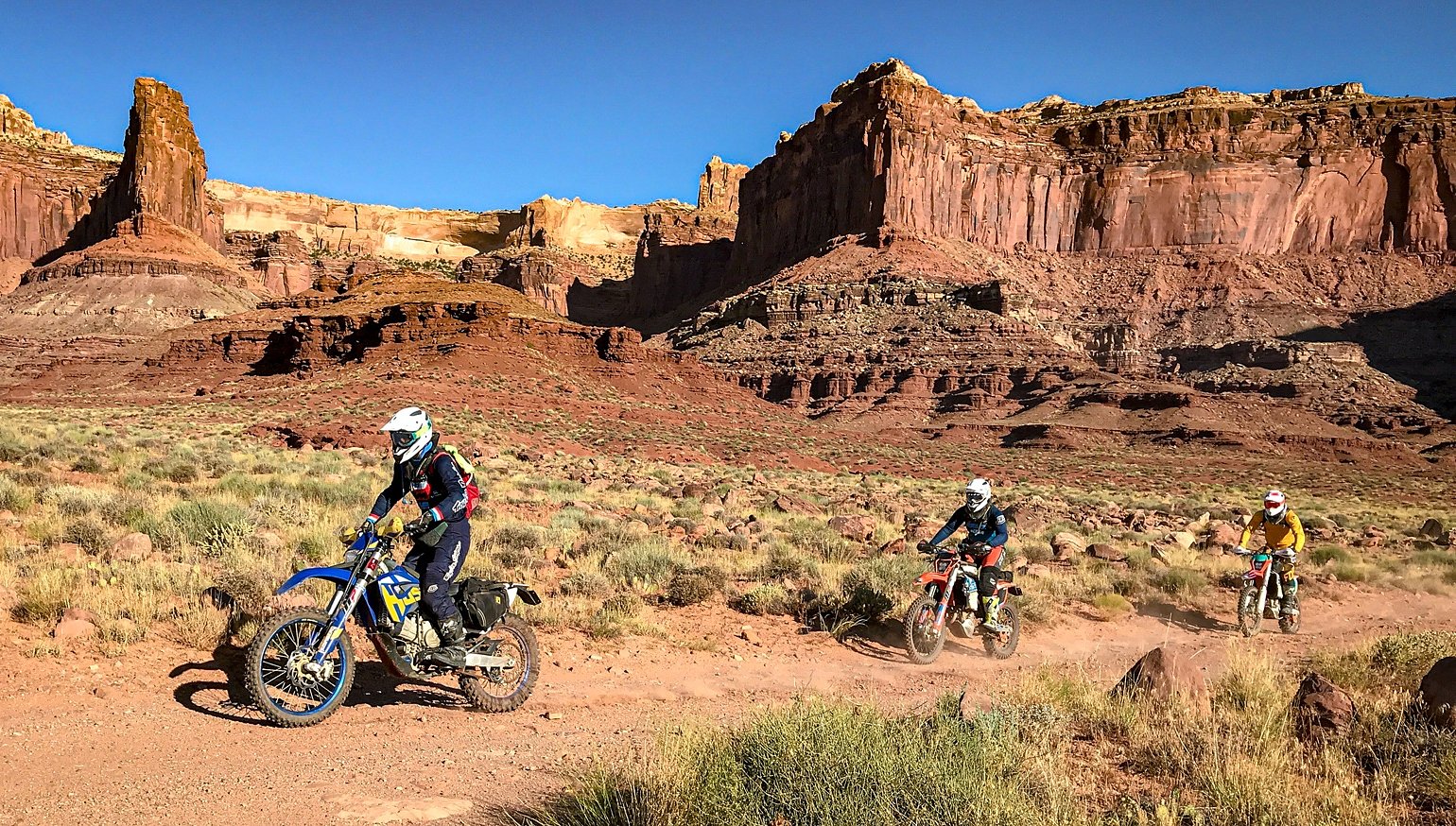Motorcycle industry organizations are slowly — some say belatedly — starting to speak up about a proposal in Congress that would put millions of acres of public land up for sale. The question for motorcyclists: Will it affect access to off-road riding opportunities on federal land?
At issue is an amendment proposed by Utah Senator Mike Lee that would require the federal Bureau of Land Management and U.S. Forest Service to make available for sale about three million acres of public land in 11 western states. The stated goal of the sale is to provide land to build affordable housing. As Lee noted, in some counties in his home state the federal government controls up to 90% of the land. Buyers would be required to use the land for 10 years, with the intent of preventing a purchaser from flipping the land or selling it for other uses instead of housing.
The amendment excludes National Parks, National Historic Sites, and other such locations. But there is also potential for eventual sales of much larger swaths of land beyond the initial three million acres.
While organizations representing other interests, such as hunters, hikers, and outdoors enthusiasts, have taken positions against the measure, motorcycle organizations have been mostly silent. Until recent days, when the non-profit organization Backcountry Discovery Routes became the first to openly oppose the proposal.
Is this a problem for off-road motorcyclists?

"Though the bill emphasizes a public input process and prioritization of parcels adjacent to existing development, until a clear and detailed map of the affected parcels is made public, there remains uncertainty around which areas could be impacted," the BDR said in the statement.
"We remain concerned about the broad scope and the potential for unintended impacts on recreational access," the BDR said.
The BDR took the next step and encouraged supporters to contact their representatives in Congress to oppose the measure, providing information on how to reach members of Congress and offering a scripted message.
Then, late yesterday, the Motorcycle Industry Council issued a statement opposing the planned sales.
"We oppose proposals for massive sell-off of public lands to generate revenue for the federal government but recognize there may be an occasional need to sell or transfer limited patches of land to eliminate 'checkerboarding' or for state or local use," said the statement, issued jointly by the MIC, the Specialty Vehicle Institute of America (SVIA), and the Recreational Off-Highway Vehicle Association.
When public lands are sold, the MIC statement suggested several restrictions that would ensure "no net loss of motorized recreatoin areas."
Meanwhile, as of yesterday, the American Motorcyclist Association had yet to oppose the bill formally. Government Relations Director Nick Haris said the AMA is working on a more detailed response but for now he issued a mildly worded statement that said "Congress would be well served to listen to the many voices opposed to this proposal."
The potential sale of public land is a more clearcut issue for those interested in hiking, hunting, fishing, camping, and other uses. The fact that it isn't totally clear what effect the sales will have on motorized trail access is the most likely explanation for why the industry has been slow to wade into the issue. There are still differing opinions of how much the sales could impact motorcyclists.
A Utah-based writer on one motorcycle website has addressed the issue with a level of alarm that might be associated with a proposal to sell Gettysburg National Military Park to developers to be turned into Confederate World Theme Park. On the other hand, Loren Campbell, president of the Utah Public Lands Alliance, issued a statement thoroughly examining the issue and concluding, "After review, I believe the Amendment is crafted well enough to provide safeguards for OHV recreation and should not have any serious impacts on OHV or other forms of recreation, but that is just my opinion."
So, as you can see, opinions are mixed. Since the amendment is part of a complicated reconciliation bill that is made even more complicated by the fact that Republicans are going through a special process to prevent Democrats from being able to block the bill with a filibuster in the Senate, it's anyone's guess how this all turns out. But after watching and waiting, the motorcycle industry's biggest lobbyists are beginning to speak up on the topic.






